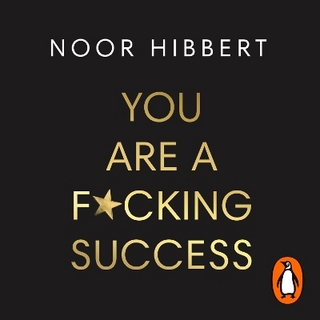
Dishing the Dirt
Canbury (Verlag)
978-1-912454-48-8 (ISBN)
'Succeeds brilliantly in dismantling casual assumptions about the drudgery of cleaning' – THE GUARDIAN
'A great book, well researched, funny and poignant. I loved it.' – KIT DE WAAL
Dishing the Dirt tells the jaw-dropping stories of London’s house cleaners for the very first time.
We hear from immigrants who clean suburban family homes to butlers who manage the homes of the super wealthy, and from joyful cleaners and entrepreneurs to escaped victims of human trafficking.
Then there are women who dust nude and male cleaners who have to fight off wandering hands. And the crime scene cleaners.
With the revelation of Maid by Stephanie Land and the cleaning tips of Mrs Hinch's Hinch Yourself Happy, Dishing the Dirt will turn all of your assumptions about cleaners upside down.
About the Author
Nick Duerden is a writer and journalist whose work has appeared in The Guardian, the Sunday Times, the Daily Telegraph, the i paper, and GQ. His books include Exit Stage Left, Get Well Soon: Adventures in Alternative Healthcare, A Life Less Lonely, and The Smallest Things. He lives in London with his wife and two daughters.
Extract
Prologue. Clocking On
It was as if she were invisible, like she wasn’t even there. Or, perhaps more accurately, like she didn’t really count, not in any tangible sense, this mostly silent domestic cleaner with the broken English whose back was perpetually stooped over the vacuum cleaner, the dustpan and brush, the damp mop; someone who likely knew her way around the utility room better than the homeowners themselves.
Today, the wife was away on business, as she frequently was, but the husband wasn’t here alone. The marital bed was not empty.
‘A different woman,’ she says. ‘Younger.’
And he didn’t hide this from you, wasn’t embarrassed, ashamed of parading his affair so brazenly under your nose?
She shakes her head, and smiles tightly. ‘No,’ she says. ‘No.’
She was seemingly in his confidence, then, but not through any prior agreement, a finger to the side of the nose, and nor was he paying her for her silence, her implicit complicity. ‘I don’t think he even considered me,’ she says. ‘Or my reaction.’ She was merely part of the furniture, a once-weekly presence in the house who mutely got on with her work as she always did, over three floors, three bedrooms and two bathrooms: the vacuuming, the polishing, the dusting...
...
In the 1980s, both husbands and wives were now required to go out to work, to pursue careers. This left little time for domestic upkeep... There was no shortage of willing char ladies.
In the 21st Century, we are willing to delegate more, specifically to pay others to do the work we’d rather not do ourselves, even if we cannot really afford it. A wave of cheap immigrant labour entered the UK between 2000 and 2020, especially from the new EU member states in eastern Europe. Better to pay a Magda from Poland, say, £30 a week to run the Hoover around the house for a few hours than to save the money for a rainy day.
...
Those that clean for Londoners are a silent army. They bring order to our lives, they put out the bins, and relieve us of at least some of the myriad pressures of modern life. They are privy to our indiscretions, our peculiarities, our curious habits. They put up with us, which isn’t always easy because some of us are complicated souls.
But who are the members of these well-drilled regiments? What are their stories? Do they know that we talk about them when we are among ourselves—at dinner parties, at coffee mornings, at the school gates—and how much do we care that they, too, talk about us? If we are the prism through which they view their host nation, what conclusions do they draw? Do we make for decent employers, fair and kind, perhaps even generous? And if we are sometimes cruel, and talk down at them, why do we do that? Do we treat them fairly—or are they being taken advantage of?
If we asked them, what would they say?
Buy the book to continue reading
Nick Duerden is a writer and journalist whose work has appeared in The Guardian, the Sunday Times, the Daily Telegraph, the i paper, GQ, Esquire and Elle. His books include Exit Stage Left, Get Well Soon: Adventures in Alternative Healthcare, A Life Less Lonely, and The Smallest Things: On the Enduring Power of Family. He lives in London with his wife and two daughters.
AUTHOR'S NOTE. 'In the autumn of 2018, I set out to find out more about the individuals who [hoover, mop, polish, scrub and tidy] our homes. Over 15 months, I interviewed dozens of cleaners from all over the world who have settled, and now work, in London, and I asked them about their lives.'
PROLOGUE: CLOCKING ON. We see the world through the eyes of a cleaner whose employer is having an extra-marital affair. Charts the history and rise of UK domestic help. Many cleaners come from Poland, Bulgaria and Romania. 'Those that clean for Londoners are a silent army... What are their stories?'
1. THE ENTREPRENEUR. Yuliya arrived in Britain as a penniless cleaner from Bulgaria, speaking "such bad English." Now she drives a BMW and educates her children at a private school. She runs a cleaning agency in Surbiton, London, and has stories galore about the "low status" of foreign cleaners.
2. THE ACTRESS. Rosi is an actress from Spain - and wants to act again. But for now, she cleans. "English people are not going to clean their own toilets, are they? I love English people. But, no, they wouldn’t do that. But then it’s the same in our country: it’s the immigrants that do certain jobs"
3. SLAVE LABOUR. For most cleaning is a choice, but not for everybody. Amirah from Jakarta, Indonesia, was trafficked to London under the pretence she would earn £500 a month cleaning an embassy. She worked round the clock in a home in Acton, sleeping in a closet and eating on a doormat.
4. MIDLIFE CRISIS. Michele was a successful US music journalist, living a life of canapés, champagne and excess. At 49, she had kids, a husband and panic attacks. She moved into a bedsit and started cleaning. 'The ‘low status’ tag didn’t particularly bother her. She had learned a lot in rehab'
5. THE TRADE UNIONIST. 'Marissa is chief organiser here, the founder of The Voice of Domestic Workers. She is a 48-year-old Filipino who cleans during the week and arranges these classes at the weekend for her fellow cleaners to unwind. As well as dance, they are taught English, IT, and their rights'
6. THE LESSER-SPOTTED MALE. Many clients want a man to clean their home, says Mario, a lifelong Londoner whose family came from Malta. Perhaps they need the bed or sofa moved. Aged 60, Mario worked in the ticket office for London Underground for 27 years. He enjoys cleaning and his flat is spotless.
7. THE CLEANER RETURNED HOME. Many Eastern European women arrive in the UK with the dream of one day returning home to Poland or Bulgaria. Zofia, a Pole, met her Polish husband in the UK. He wanted to stay; she wanted a new life. Back in Wrocław, they had children, bought land and plan to build a house
8. THE CRIME SCENE CLEANERS. A murder in a home can leave a lot of blood. Someone has to clean it up and the police employ specialist cleaning agencies. Say hello to Maxine and Jasmine who enter entering premises in Luton shortly after the Crime Scene Investigation team have removed their police tape
9. CLEANING FOR THE SUPER-RICH. When training butlers to look after the interests and whims of billionaires, Vincent Vermeulen must ensure they how to conduct themselves around money and moneyed individuals. 'He also trains his staff a trick most stage illusionists would love to perfect: invisibility'
10. THE NAKED CLEANER. Naked cleaning is a growth industry and Brandy is happy to waltz around the homes of clients in the nude, dusting and hoovering. It’s seemingly not about sex, though sex is somewhere in the mix. Brandy insists it is ‘nothing pervy.’ Some of her clients are naturists
11. CLEANING IN JAPANESE. While dusting, polishing and scrubbing, some cleaners like to spruce up their skills as well as their clients' homes. Middle class Natalie, 28, from Devon listens to a couple of hours of Japanese a day, through earphones while she runs a Henry hoover around a London townhouse
12. THE MODERN BUTLER. Only those who work with millionaires learn the true distinction between Old Money and New Money. Monika from Slovakia is a 'house manager' to wealthy individuals. Domestic staff entering this world can only do so successfully after intensive training. They become smart and suave
13. THE LISTENER. A Filipino, Jennifer cleans houses in Wimbledon, Hampstead, Golders Green and, she says, ‘anywhere there is a job’ – six days a week. Some clients are odd or lonely. "These people, they don’t throw things away. They — what’s the word…? Hoarding. They hoard everything. So much clutter."
14. THE GAY CLEANER. Felipe is aged 38 and a Colombian resident of London. He is slim and compact, with sharp cheekbones and a kind, mournful expression. He has been advertising himself online for a few months as a ‘gay-friendly cleaner,’ and is now living with the consequences
EPILOGUE: CLOCKING OFF. 'She takes off her coat in the hallway, and her Nikes, and changes them for house shoes, then appraises the damage: three bedrooms, three unmade beds, a pile of breakfast dishes in the sink, cat hair on the sofa, the bathroom grimed with tidemarks the colour of nicotine.'
AFTERWORD. The life of cleaners, janitors, housekeepers, house managers, butlers, domestic staff, domestic servants even, the life of a cleaner is not easy. Nor was finding interviewees for this book, but the author recorded the everyday working lives of cleaners in London. In all their variety.
INDEX. Let's start with the As: abuse, acting, advertising, affairs, African workers, age, agencies, agoraphobia, Airbnb, airport security checks, alcohol issues, ambitions for the future, American workers, animal infestations, Antigona and Me (Clanchy), anxiety, Arabic language, asylum seekers
| Erscheinungsdatum | 04.10.2021 |
|---|---|
| Zusatzinfo | 1 Index; 1 Illustrations, color |
| Sprache | englisch |
| Themenwelt | Sachbuch/Ratgeber ► Beruf / Finanzen / Recht / Wirtschaft ► Bewerbung / Karriere |
| Sachbuch/Ratgeber ► Gesundheit / Leben / Psychologie | |
| Sozialwissenschaften ► Soziologie | |
| Wirtschaft ► Betriebswirtschaft / Management | |
| ISBN-10 | 1-912454-48-3 / 1912454483 |
| ISBN-13 | 978-1-912454-48-8 / 9781912454488 |
| Zustand | Neuware |
| Haben Sie eine Frage zum Produkt? |
aus dem Bereich


